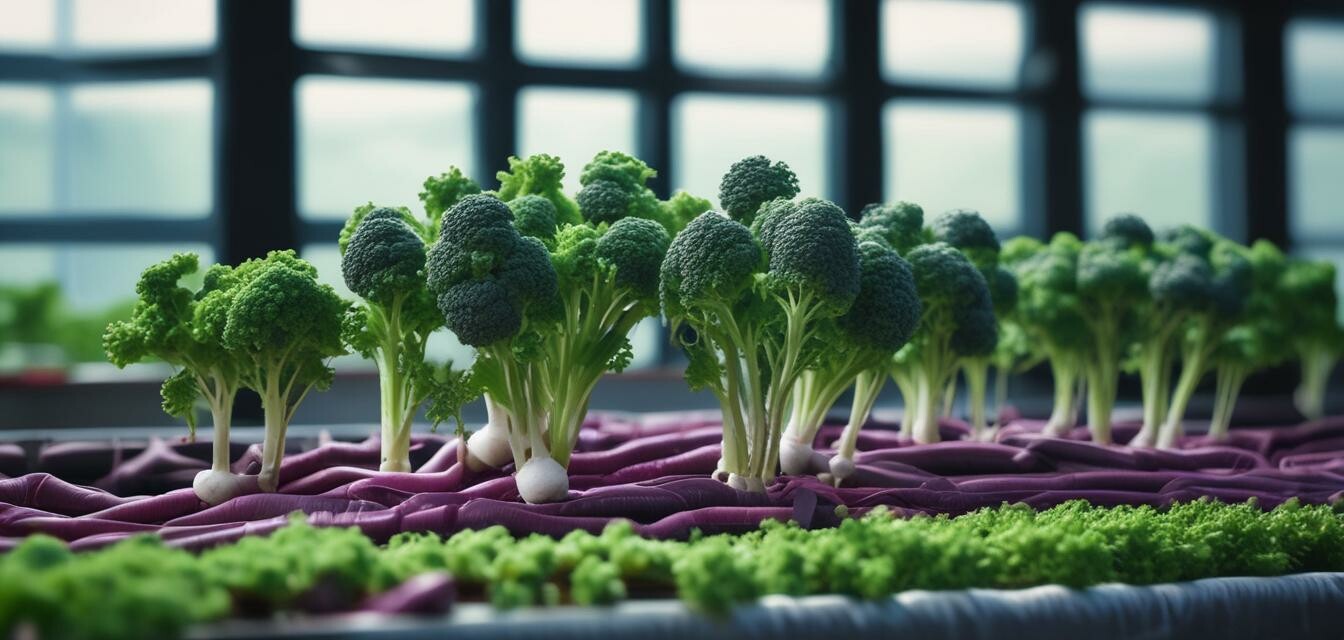
Exciting New Vegetables to Try in Hydroponics (2025)
Key Takeaways
- Explore unique vegetable varieties gaining popularity in hydroponics.
- Learn about optimal growing requirements for each vegetable.
- Discover tips for selecting the best systems for your chosen crops.
- Understand the importance of nutrient management for successful yields.
- Maximize your indoor garden's potential with fresh and diverse choices.
Hydroponics has been an innovative way to grow plants without soil, making it perfect for urban gardeners and those lacking outdoor space. As we enter 2025, gardening enthusiasts are eager to explore new and exciting vegetable varieties to cultivate in their hydroponic systems. In this article, we’ll introduce you to some unique vegetables that are poised to become favorites in your indoor garden.
1. Purple Carrots
Purple carrots are not only visually stunning but also bring a wealth of nutrition to your plate. With their sweet and earthy flavor, these vegetables add a splash of color and health benefits.
Growing Requirements
- Light: Requires 12-14 hours of light daily.
- Nutrients: Needs nitrogen-rich solutions for optimal growth.
- Temperature: Thrives at 60-70°F.
2. Romanesco Broccoli
This striking vegetable with a fractal appearance is not only nutritious but also a conversation starter. Romanesco boasts a unique flavor that is a blend of broccoli and cauliflower.
Growing Requirements
- Light: Prefers full-spectrum light with 14-16 hours daily.
- Nutrients: Enjoys a balanced nutrient mix with calcium and magnesium.
- Temperature: Ideal growth at 60-65°F.
3. Striped Eggplants
Striped eggplants add variety to your hydroponic garden both in taste and color. Their milder flavor complements various dishes, and they thrive in nutrient-rich conditions.
Growing Requirements
- Light: Needs 12-14 hours of light per day.
- Nutrients: Requires potassium-rich solutions for fruiting.
- Temperature: Prefers a warm climate around 70-80°F.
4. Baby Beet Greens
For those looking for quick-growing vegetables, baby beet greens are an excellent choice. They are packed with flavor and nutrients and can be harvested within weeks.
Growing Requirements
- Light: Requires 12 hours of light daily.
- Nutrients: Benefits from iron and nitrogen-rich solutions.
- Temperature: Grows best at 60-70°F.
5. Fennel
Fennel is a unique addition to any hydroponic garden, known for its distinctive anise flavor. It can be harvested for both its bulbs and fronds.
Growing Requirements
- Light: Needs 10-12 hours of light daily.
- Nutrients: Favors a high-phosphorus nutrient solution for bulb formation.
- Temperature: Thrives in a range of 65-75°F.
Comparison Table of New Vegetables
| Vegetable | Light Requirement | Nutrient Needs | Optimal Temperature |
|---|---|---|---|
| Purple Carrots | 12-14 hours | Nitrogen-rich | 60-70°F |
| Romanesco Broccoli | 14-16 hours | Calcium & Magnesium | 60-65°F |
| Striped Eggplants | 12-14 hours | Potassium-rich | 70-80°F |
| Baby Beet Greens | 12 hours | Iron & Nitrogen | 60-70°F |
| Fennel | 10-12 hours | High-phosphorus | 65-75°F |
Tips for Successful Hydroponic Gardening
- Start with high-quality seeds to ensure your plants thrive.
- Keep an eye on pH levels to maintain a balanced nutrient solution.
- Provide adequate airflow to prevent mold and promote healthy growth.
- Regularly check for pests or diseases that could harm your crops.
- Consider using grow lights to achieve consistent light exposure, especially in low-light areas.
Conclusion
As we move into 2025, hydroponic gardening offers an exciting opportunity to explore unique vegetable varieties like purple carrots, Romanesco broccoli, striped eggplants, baby beet greens, and fennel. Proper knowledge of their growing requirements, optimal conditions, and careful nutrient management can lead to thriving plants and abundant harvests. Whether you are a beginner or a seasoned hydroponic gardener, these new vegetables will add vigor and diversity to your indoor garden.
Additional Resources
For more information about hydroponic gardening techniques, check out our Growing Techniques page. If you're interested in learning how to manage nutrients effectively, visit our Nutrient Management blog. For a comprehensive guide on choosing suitable hydroponic systems, see our Buying Guides section.